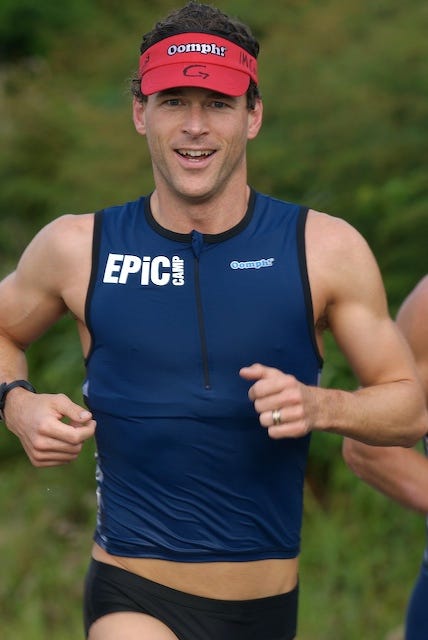Human OS and Endurance Athletes
Jim O'Shaughnessy is a favorite follow and introduced me to Human OS.
Human OS is our default operating system. After birth, our OS is reinforced by our parents, communities and environment.
It wasn't until I started training _very_ seriously that I became aware of my default programming.
Athletic stress is a low-stakes method to surface our default settings.
Amateur sport has lower emotional, and financial, stakes than our families, and careers. It is an effective venue for self-improvement.
Awareness is the first step... I'll share certain traits you might want to notice.
Once you see these in your sport, look for them in your driving (another training ground for elite emotional control), at the office or around the Thanksgiving table.
There is no "right" answer.
What's useful is understanding our tendencies then allocating time to train against preference.
The goal being to remain emotionally stable as stress ramps up.
The benefit being the capacity to think clearly under duress.
++
Hills
A hill pushes against you.
What do you do?
Do you have the capacity to anticipate the hill? Shift to an easier great, or shorten your stride, in advance of your heart rate spiking?
Step outside your sport.
Life pushes you.
What do you do?
Start with hills, it's easier.
+
Where do you place most of your energy?
At the bottom, middle, or top of the hill?
I'm a "top of the hill" rider - I want my power to be highest when air speed is lowest.
I want to optimize overall time and avoid the pain of regret.
My son is a "bottom of the hill" rider - he likes the challenge of hanging on.
My son wants to win. He is likely to regret not giving maximum early effort.
We can learn from each other.
++
Weather
My kids love bad weather racing.
Why?
Because they've learned it hurts the competition more.
How do you deal with weather?
Surprisingly simple to retrain our attitudes here.
++
Pacing
What's the fastest part of your interval, set and workout?
What's the slowest?
How does your profile compare to other people?
How often do you train against your preference?
Understanding the slowest part of an event, then training to be fast in that segment, will give you an edge in your racing.
Understanding our own tendencies makes it more challenging for others to exploit them.
Some mantras that have helped
Stay in the game
Always finish strong
Speed up, before slowing down
Quit later
Never get in the van
Be the brand
++
Feel
Do you have the capacity to feel speed?
The air against your body, the water against your skin, the pressure of the pedals...
Breathing rate, muscular tension, heart beats, lactate...
There's a feeling to all of the above.
How about seeing speed? How fast you're moving.
With the gizmos available to us, it's easy to lose the ability to choose how we're feeling.
Feelings, our response to stimulus and stress, are highly trainable.
Take charge of your ability to decide how you're doing.
Being excessively data-focused can drain mojo, without benefit.
Be more than your data.
++
Setbacks
How often do you get sick, injured or have a setback?
A pattern of setbacks will have more to do with your approach than fate.
A simple 'trick' here.
Build your circle with coaches, partners and mentors with different blind spots than you.
Consider looking outside your agegroup, gender and sport.
++
What do you 'talk" about when you get home?
Ever re-read your training diaries?
Your journal?
Where's your mind focused when you're not exercising?
Relentless positivity is not common.
++
Personal Narrative
This one's important
What's the story you tell yourself about exercise?
Born to train
It's work
So I can eat more
Just get through it
Because I need to lose weight
I'm an Olympic champion
Because I will gain weight if I do less
Because...
Because...
Really listen to yourself here.
Why?
No matter your story, you will act to prove yourself right.
All my stories have proven false.
Most of my stories were useful.
Know your story.




